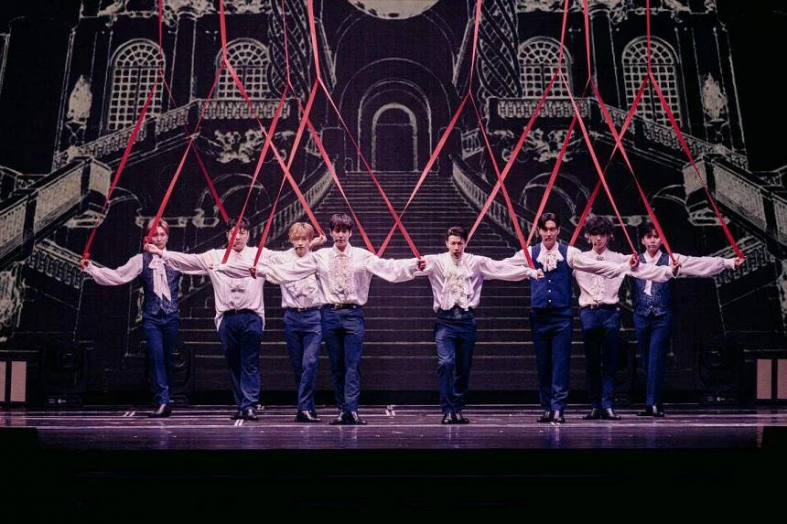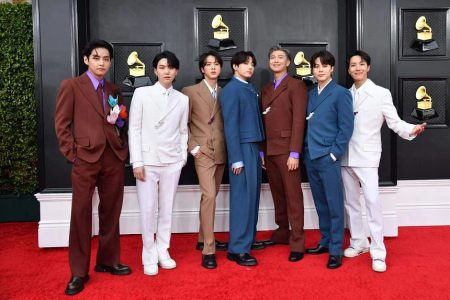War of K-pop agents: The feud between BTS’ agency Hybe and SM Entertainment
Two of South Korea’s biggest entertainment companies have been in the limelight recently, and it is not for their artistes’ latest music.
Hybe, K-pop phenomenon BTS’ management agency, is looking at taking a controlling stake in SM Entertainment that could potentially monopolise the K-pop industry.
This comes amid a family drama between the “godfather” of K-pop and his nephew over the control of SM.
Here Is a lowdown of the ins and outs of this K-drama playing out in the K-pop world.
What are these companies?
SM is known for producing the earlier generation of K-pop artistes in the 2000s such as Super Junior, Girls’ Generation, TVXQ, Boa, Exo and Shinee, who contributed to the start of the Korean wave.
The company is founded by 70-year-old Lee Soo-man, widely referred to as the “godfather of K-pop”.
Mr Lee decided to bring South Korean music around the world after he was impressed by the popularity of American musicians while studying in the United States in 1981.
He set up SM Studio in 1989, which is not only named after his own initials, but is also his dream to create a “star museum” to showcase South Korean music globally.
Over the decades, it grew into SM Entertainment and became a huge success. According to year-end data by South Korea’s music sales tracker Gaon Chart, the company accounted for 29.5 per cent of the total year-end album sales in the country, selling more than 16 million copies in 2021.
Its rival company, Hybe, which also manages K-pop acts such as Seventeen and Tomorrow X Together, did not fare too badly as well. In 2021, the company accounted for 16.6 per cent of South Korea’s total album sales, selling more than nine million copies.
Hybe was founded by Mr Bang Si-hyuk, 50, who is also the company’s chairman.
It was previously known as Big Hit Entertainment, which popularised BTS’ song Dynamite – topping the US Billboard Hot 100 in 2020. But in 2021, the company rebranded as Hybe and partnered US media entrepreneur Scooter Braun, who sold his company, Ithaca Holdings, to Hybe for US$1.05 billion (S$1.4 billion).

What is the feud between the two companies about?
In 2022, the older Lee was outraged when SM’s management, including his nephew Lee Sung-soo, agreed with South Korean activist investor Lee Chang-hwan to terminate an “unfair” deal with music production company Like Planning. AFP reported that Mr Lee Chang-hwan’s fund, Align Partners, bought a 1 per cent stake in SM in 2022.
In a recent interview with the news agency, Mr Lee Chang-hwan said it did not make sense that 6 per cent of the publicly listed SM, which went public in 2000, was paid to Like Planning. The private entity was owned and controlled by the older Lee.
AFP also reported that in an apparent fit of revenge, the older Lee sold the majority of his stake in SM – 14.8 per cent – to Hybe for US$325 million. The older Lee still retains a 3.65 per cent stake in the company, according to a regulatory filing in South Korea.
Hybe later confirmed that it would seek a 40 per cent stake in SM. If it succeeds, Hybe will become SM’s largest stakeholder, reported ABC News.
According to Bloomberg, the battle over SM will take centre stage at the agency’s annual shareholders’ meeting scheduled on March 31. Both sides are seeking to form a board with their recommended directors.
This prompted protests from SM’s management, who said the takeover would result in Hybe monopolising the K-pop industry.
Animosity between uncle and nephew
In February, SM’s top executives raised their strong opposition to the deal between the older Lee and Hybe in a joint statement. They also described the action as a “hostile takeover from outsiders”.
The nephew, who is co-chief executive of SM, then uploaded a video on his personal YouTube channel.
In it, the nephew, who is in his 40s, alleged that his uncle established a music production company called CT Planning (CTP) in Hong Kong in 2019.
“Lee Soo-man takes 6 per cent in royalties from SM and CTP for album consultation and producing. Making the production go through foreign production company unnecessarily when all the production is done by us seems like an effort to avoid the surveillance of the National Tax Service,” claimed the nephew.
AFP also reported that the nephew, who is accusing his uncle of tax fraud through overseas companies, demanded that his uncle “kneel down and apologise” for his alleged crimes.
“Sir, please stop now... It is the only way to save you from the valley of death”, said the nephew.
AFP added that the older Lee did not respond to his nephew’s allegations. But South Korean news agency Yonhap reported that the older Lee has said his nephew is a “good nephew” and his “heartaches” are due to the feud.
What is SM doing about the situation?
To gain back control, SM’s management reached a deal with South Korea’s Internet giant Kakao, which is backed by Singapore sovereign wealth fund GIC.
In February, Kakao had agreed to purchase a 9 per cent stake of SM through new shares and convertible bonds. However, the older Lee moved to block the deal through a court injunction.
Then on Feb 7, Kakao and its entertainment unit, Kakao Entertainment, offered to buy up to a 35 per cent stake in SM for 150,000 won (S$153) a share – bringing the total value of the offer to about 1.25 trillion won.
Kakao and Kakao Entertainment hold about 4.9 per cent of SM shares, and the tender offer could take that to almost 40 per cent.
How will the feud affect the future of K-pop?

The K-pop industry has been dominated by three big entertainment companies – SM, JYP Entertainment and YG Entertainment.
JYP manages artistes such as Twice, while YG manages artistes like Blackpink.
The Korea Herald reported that there have been concerns among K-pop fans and industry insiders about the potential market domination by the partnership between SM and Hybe.
However, Hybe said it will guarantee the full independence of SM.
The older Lee will also not participate in the business management and production or take any royalties from SM, said Hybe CEO Park Ji-won during a conference with his employees in mid-February.
The future of SM now lies in the monthly board meeting later in March, in which new executives are expected to take over the helm of governance.
Four board members of SM will end their terms, including the nephew. ABC News reported that he will not seek re-election as co-chief executive.
The news agency also reported that Hybe is proceeding with its takeover, and SM has turned to its minor stakeholders to seek support in resisting the bid.
Mr Park reportedly said the deal between the two companies was necessary to solidify K-pop’s global influence amid a slowdown in growth.
However, SM disputed the claim. The company argued that the deal would also give Hybe a monopoly over the K-pop industry and lead to a decline in future K-pop creators due to a lack of competition.
SM’s chief financial officer Jang Cheol-hyuk believes that Hybe is using its dominant position to jack up concert ticket prices and sideline SM’s own artistes, among other things, according to an ABC News report.
“The monopoly created as a result of Hybe’s hostile acquisition of SM will cause more diverse and direct problems, including decreased diversity of artists, music and concerts,” he said.
How are K-pop fans, artistes, industry insiders reacting?
Korea JoongAng Daily reported that fans of SM’s artistes held an LED truck protest in front of Hybe headquarters in Seoul on Feb 28.
Pictures of these trucks were posted online, displaying messages such as “We fans oppose Hybe’s monopoly”.
An unidentified fan who took part in the protest told local reporters: “(Hybe) should be asking how fans and artistes feel about everything, but no conversation is taking place.”
In a separate news report by the same news agency, an unnamed Hybe fan said: “Hybe won’t stop until there’s no other agency left but Hybe in Korea.”
Staff at SM have also been openly opposing Hybe’s takeover bid.
A total of 208 SM employees have reportedly come together under a coalition and issued a statement opposing Hybe’s purchase of the company’s shares.
“Former chief producer Lee Soo-man has sold his shares to a competitor that he has been belittling and ran away as his illegal tax evasion came to light,” said the statement. “We will protect the cultural diversity of K-pop and the unique identity of SM Entertainment. SM Entertainment’s culture cannot be subject to Hybe’s capital.”
Meanwhile, Shinee member Kim Ki-bum, who is also known by his stage name Key, described the atmosphere at the agency as unsettled.
“I want to hold a performance more than anyone,” he said during a live session with fans on Feb 13 after releasing his solo album, Killer. “But who can I ask to get an encore concert? I have no idea. The company is so unsettled right now.”
Get The New Paper on your phone with the free TNP app. Download from the Apple App Store or Google Play Store now


